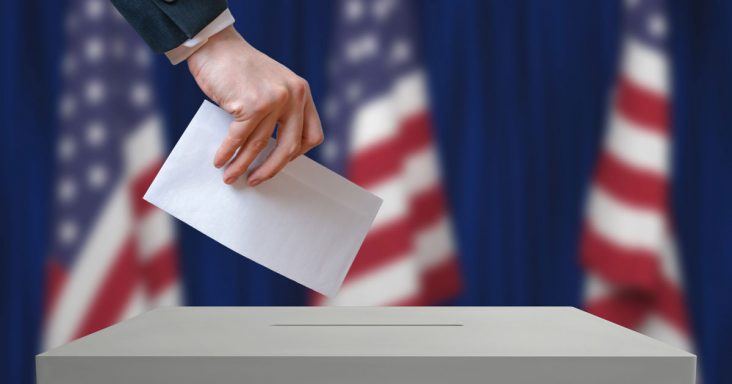League of Women Voters files suit against new election laws
by May 20, 2021 9:59 am 1,164 views

The League of Women Voters and the immigrant advocacy group Arkansas United have filed a lawsuit in the Circuit Court of Pulaski County challenging new voting laws passed by the Arkansas Legislature that the plaintiffs say will make it harder to vote, particularly for minorities.
The press release refers to new laws it says will require election officials to match absentee voters’ signatures to their original voter registration application; remove the option for voters without an identification to instead present a sworn statement in order to have their ballots counted; move up the deadline to drop off absentee ballots to the Friday before Election Day while still allowing absentee ballots to arrive by mail on Election Day; and prohibit anyone except voters from entering and remaining within 100 feet of a polling place.
That last provision will prevent anyone even from providing water to a voter standing in line, the press release said.
“There was absolutely no evidence that the 2020 election in Arkansas was anything but safe, secure, and successful,” said Arkansas League President Bonnie Miller. “The new restrictive bills will not increase the public’s confidence in the state’s election administration or ensure election integrity – they will do the opposite.”
The laws in question are:
– Act 736 by Rep. Mark Lowery, R-Maumelle, which among other provisions requires signatures on the absentee ballot application and the voter registration application to be similar in order for the county clerk to provide an absentee ballot to the voter. The law passed the House, 74-22, and the Senate, 27-8, before being signed by Gov. Asa Hutchinson.
– Act 249 by Lowery, which removes the sworn statement provision. It passed the House, 75-20, and the Senate, 25-9, before being signed by the governor.
– Act 973 by Sen. Kim Hammer, R-Benton, which requires absentee ballots to be returned to the county clerk’s office by regular closing hours on the Friday before Election Day by the registered voter, designated bearer, or the absentee voter’s administrator. The law passed the Senate, 25-8, and the House, 65-25, and became law without the governor’s signature.
– Act 728 by Hammer, which prevents a person from entering or remaining within 100 feet of the primary exterior entrance where voting is taking place except for “lawful purposes.” Doing otherwise is a misdemeanor offense. The bill passed the Senate, 27-7, and the House, 74-23, before being signed by the governor.
Earlier this month, John DiPippa, a professor at the University of Arkansas at Little Rock Bowen School of Law, told Talk Business & Politics that laws dealing with elections are less likely to be overturned by a court decision than other bills challenged on a constitutional basis because election laws are considered a state issue, and states can impose restrictions as long as laws are applied equally.
Under the Voting Rights Act of 1965, states cannot enact rules that have a disproportionate effect on racial minorities, but that is difficult to prove from an evidentiary statement. For example, the signature provision is probably okay constitutionally because it would apply to everyone, DiPippa said.
“The federal Constitution doesn’t guarantee a right to vote,” he said. “It assumes that people will be voting, and then the court has said when a state offers voting, it must do so on an equal basis.”
